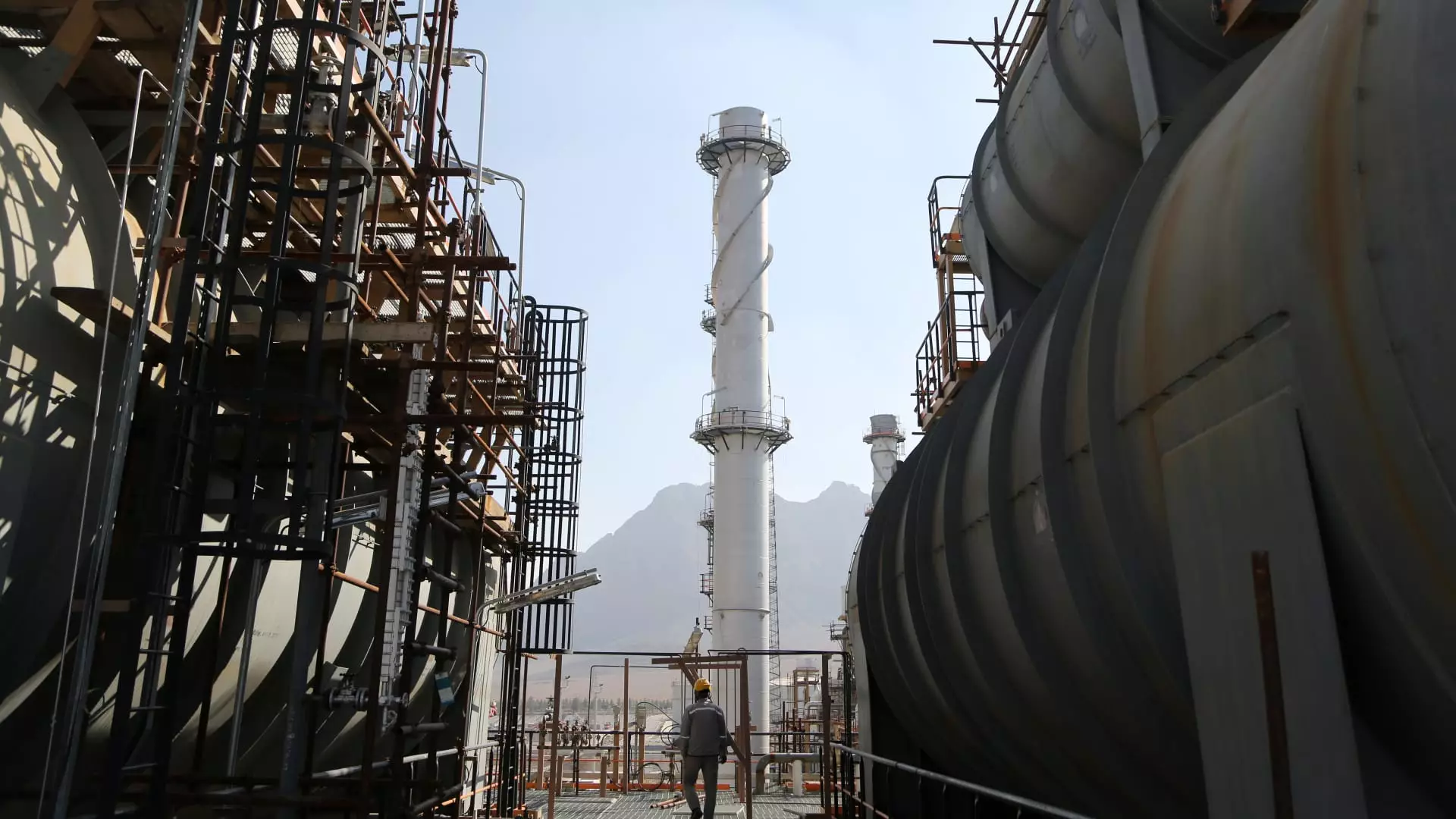The global oil market is facing unprecedented risks as tensions in the Middle East spiral into direct military confrontation. Following Iran’s recent ballistic missile attacks on Israel, industry analysts are increasingly concerned about potential disruptions to oil supplies. This conflict has profound implications for the international energy market, with experts warning that crude oil prices may surge significantly as supply lines are jeopardized.
On a strategic level, Iran’s retaliatory missile strikes were launched after Israel’s targeted killings of key figures in the Iran-backed Hezbollah group. This move has escalated the already volatile situation and may prompt a broader military response from Israel targeting Iranian oil infrastructure. The consequential impact on the oil market has already been noted, as analysts signal a material risk to global oil supply, potentially affecting as much as 4% of the total market.
The regional turmoil comes after an extended phase of “geopolitical risk fatigue,” during which traders largely dismissed threats to oil supply from conflicts in the Middle East and the ongoing situation in Ukraine. However, with direct military actions involving Iran now at the forefront, the narrative is shifting. Saul Kavonic, a senior energy analyst, emphasizes that the potential for serious disruption to oil supply has transitioned from a theoretical concern to an imminent reality.
Recent market reactions illustrate this shift. Following news of the missile strikes, Brent crude oil prices saw an increase of over 5% before stabilizing to a 2% rise. Currently, these prices fluctuate around the $74 per barrel mark for Brent and approximately $71 for U.S. West Texas Intermediate (WTI). Daniel Lipow from Lipow Oil Associates notes that this uptick, while notable, exists against the backdrop of rising U.S. oil production and subdued demand from China, suggesting that these conflicts have layered additional complications onto an already complex pricing scenario.
The dynamics of the ongoing Israel-Hamas conflict have become markedly more complicated as Israel shifts its focus from Gaza to Iranian-backed militias in Lebanon. Bob McNally, President of Rapidan Energy Group, argues that this turn represents a more significant phase of conflict that is increasingly intertwined with energy security. This escalation not merely threatens oil supply but has potential repercussions that could ripple through the global economy.
As Israel prepares for a potential large-scale response to the missile attacks, observers predict a substantial increase in regional military actions. Ross Schaap from GeoQuant highlights that data-driven analyses indicate a sharp rise in political risk related to this conflict, marking a significant increase above previous averages. Such indicators suggest that the geopolitical landscape is not just heating up but may lead to considerably larger-scale military engagements with dire results for oil prices.
The implications of targeting Iranian oil infrastructure cannot be understated. Analysts like Josh Young from Bison Interests contend that should military actions lead to Iranian oil exports being disrupted, the results would be immediate and severe—potentially elevating oil prices beyond the coveted $100 per barrel threshold. Such a price surge would not only impact consumers at the gas pump but could also reverberate through various sectors, upending economic stability worldwide.
In a world still recovering from the impacts of the COVID-19 pandemic, the intersection of militarized conflict and energy supply management presents a formidable challenge. As tensions mount, and as strategies unfold between global powers, the energy sector remains on high alert, preparing for potential disruption that could alter the fabric of global oil markets.
As we look to the future, the potential for extended conflict in the Middle East carries profound implications for energy markets worldwide. The prospect of significant disruptions looms larger than ever, leaving traders and analysts grappling with uncertainty. With Iran’s actions precipitating a new round of geopolitical tensions, the echoes of this conflict will likely resonate throughout global markets for the foreseeable future, shaping oil supply dynamics and pricing in ways that remain to be fully understood.


Leave a Reply